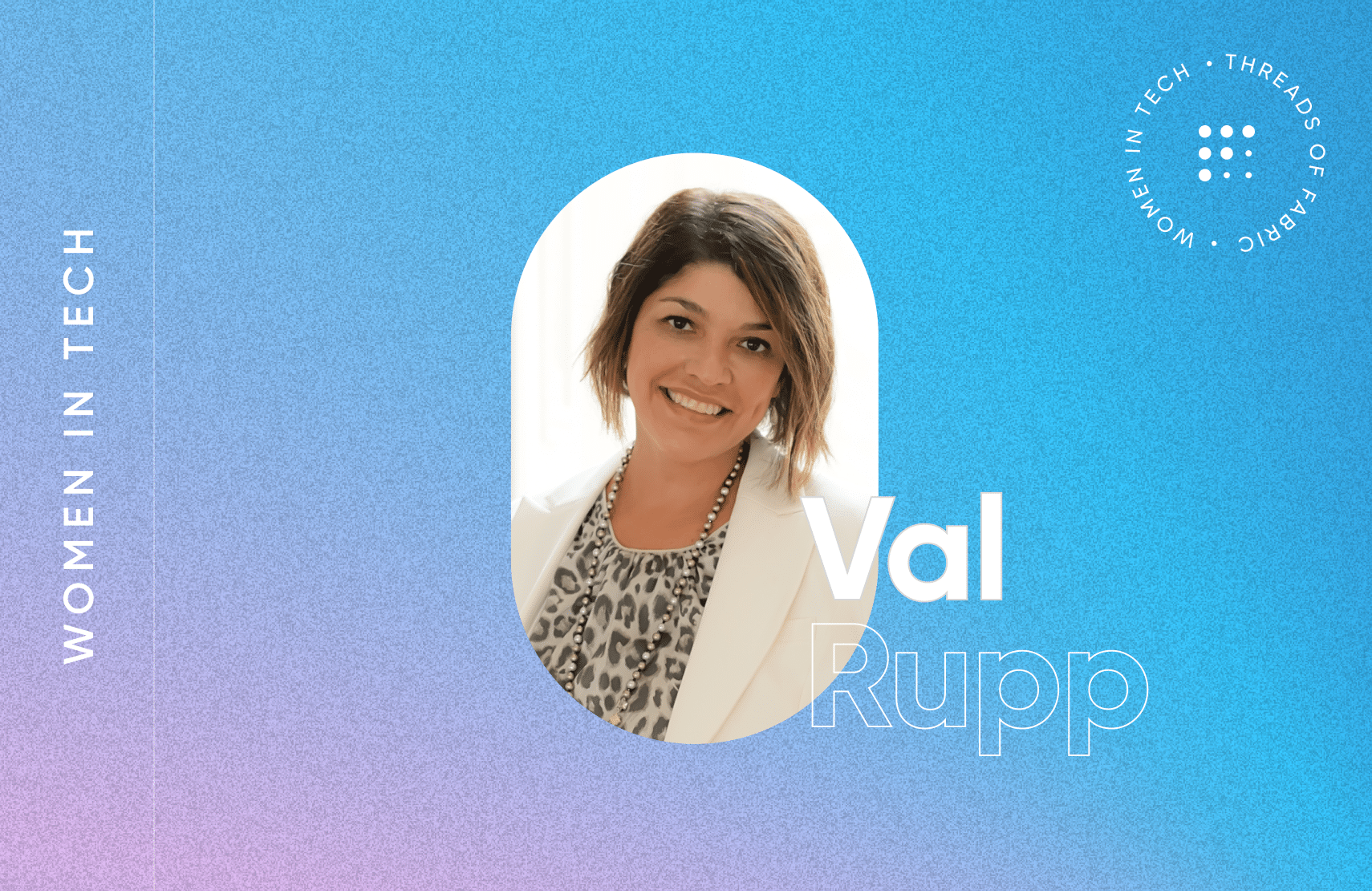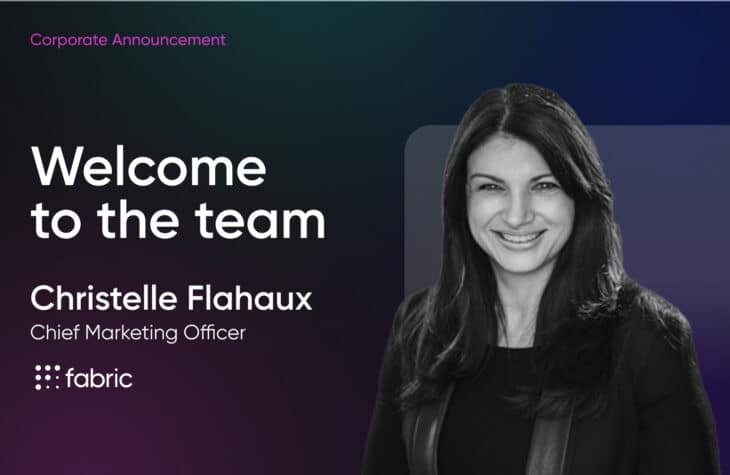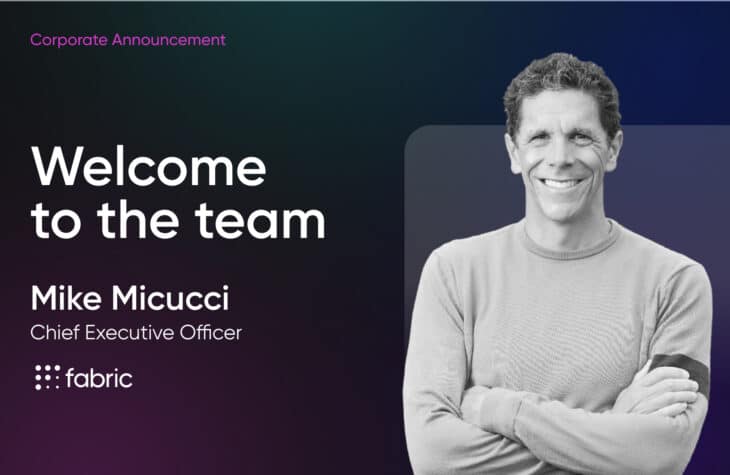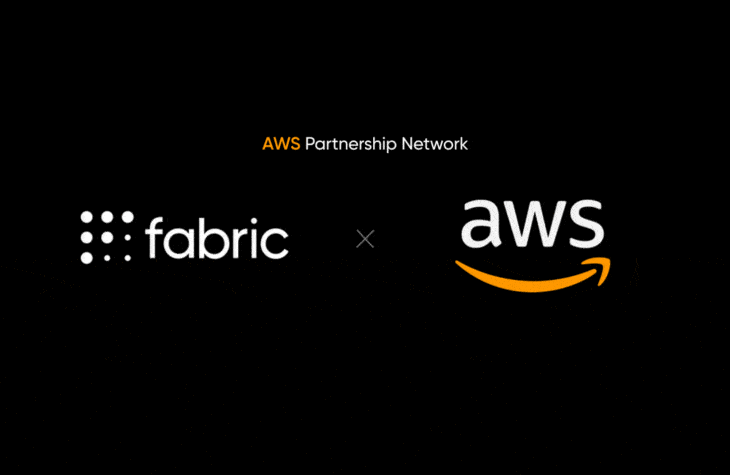Val Rupp: Audaciously Building The Premier Workplace in SaaS

As fabric’s first Chief People Officer (CPO), Val Rupp is tasked with creating a work culture that attracts, retains, and delights some of the highest levels of talent in the ultra-competitive software-as-a-service (SaaS) industry.
Known as a solutions-oriented change leader, she actively leverages technology, processes, and standards across all facets of HR to serve the company’s mission.
Under Val’s leadership, fabric champions diversity, equity, and inclusion (DEI) as a durable competitive business advantage.
Val is a Mexican-American woman who has earned her seat at the C-suite table. She says it’s vital for women and minorities to advocate for one another, as well as for allies to open the gates to opportunities in the workplace.
Ask many of the men and women at fabric who they admire, and Val Rupp’s name will undoubtedly be mentioned. Val was brought into the fold of fabric while the remote-first company had plans to accelerate its growth and did so by rapidly and materially growing employee headcount in just one year.
If you’re familiar with the startup world, then you know that even the most well-executed hiring sprees can result in high employee churn and even damage to the employer brand. However, as the company’s first CPO, Val immediately tackled some of the biggest HR challenges that the company faced—head-on—with her signature, solutions-oriented management style.
Val spearheaded some of the most critical early initiatives at one of the fastest-growing startups in headless commerce by:
- Implementing best-in-class technologies
- Streamlining back-end HR functions
- And putting the right systems and processes in place to make objective, data-driven decisions across hiring, compensation, and job leveling (also known as job classification)
Not only have these changes created tremendous value for fabric’s culture and employer brand, but they’ve also formed a more diverse and inclusive workplace where employees are free to express themselves, develop their skills, gain valuable experience, and reach their full potential.
A Seasoned Leader That Earned Her Stripes
Val’s success at fabric is not surprising when considering where she came from and how she got to her leadership position.
Val is a fourth-generation Mexican-American who earned her seat at the C-suite table after tremendous experiences in human resources. Early on, while taking classes for her MBA at night, she put her degree in psychology to good use in a customer service role at UPS. Ultimately, she decided HR was the right profession for her and led a project for UPS to identify why the company was experiencing significant turnover.
It was there that she helped the company realize there were a few key things that could make a difference. One was offering a Spanish-language compensation differential. She presented ideas for positive change to senior leadership, and upon seeing the changes implemented, she found her passion for creating inclusive cultures.
Throughout the years, Val has led HR initiatives at some of the most influential Fortune 100 tech companies in the world. From Amazon to Microsoft to Hewlett Packard Enterprise, she’s had a hand in shaping the career trajectories of tens of thousands of employees all around the globe.
Yet even throughout her extraordinary journey, she’s never forgotten where she came from and is always looking for opportunities to give back. Today, in addition to her CPO role at fabric, Val is a proud board member of Prospanica, a non-profit organization dedicated to empowering the Hispanic community to achieve their full educational, economic, and social potential.

Val and her family.
What Mentorship Is Lacking Today
On the topic of mentorship, Val says she considers it a privilege to be able to mentor others, specifically women and people of color. But in her own career trajectory, nearly all of the mentorship she received came from men.
She says this is one of the reasons she experienced imposter syndrome when she was younger, which involved feelings of self-doubt and personal incompetence despite her remarkable achievements and accomplishments. While her male mentors helped her in many ways, they didn’t understand the specific advice she needed as a woman in tech: to take her seat at the table without hesitation and take up the space she deserved.
She realized that because women are often brought up to be accommodating and polite, the instinct is to step back and make space for others, while men are often comfortable stepping forward:
“I got to the table, but I wasn’t immediately sure how to make myself seen and heard… I didn’t want to be disrespectful to my superiors.”
Because of this lack of female mentorship, Val had to keep an open mind, learn through trial and error, and use her powers of observation to gain an understanding of how to take up more space. She also cites the book The Confidence Code in helping her grasp the dynamics that held her back. Now, as a leader in HR, she takes count of how many women are at the table and strives for equality in those numbers.
Expert Strategies for Building a Premier Workplace Culture
According to Val, implementing systems and processes are integral to achieving success in the fast-paced world of SaaS.
“For a long time,” she says, “I felt like I was accomplishing things out of the sheer power of my own direction.” But when a mentor gave her the advice to “stop watering each plant by hand and instead set up irrigation systems,” she had a breakthrough.
She realized that for any company to achieve success at scale, the right systems and processes need to be in place that foster an environment of fairness, transparency, and openness and where all employees can feel they can bring their whole selves to work.
She also realized that successful leaders in tech need to be observant and curious. Figuring out which team members will thrive in which tasks, as well as how to scale in proportion to growth, requires keen observation and a deep understanding of how to allocate resources to achieve optimal results.
Mastering the skill of delegation is also where new leaders, managers, and mentors often run into trouble. To some, delegation can feel like relinquishing control.
She says that successful delegation is knowing the depth of your business but not holding so tightly that your team feels micromanaged. While delegating can be a great way to increase the retention of motivated team members, micromanaging is a surefire way to push otherwise motivated and innovative team members out the door.
According to Val, the key is “figuring out a way to stay connected in the right places while not removing the autonomy that’s given to a team.” Val herself keeps an open door policy, so her team members always feel welcome when they need to ask for help.
And yet, she says, being able to draw the line is also important—like knowing when to say, “Okay, we’ve tried that, time to move on.” This important strategy can be executed by setting triggers and expectations early on, which can signal when it’s time to pivot.
Contingency plans are also the muscle of a startup because they allow for frequent experimentation. They give you the flexibility to move fast, try new things, and let go of perfectionism to reach the goal of creating something innovative and game-changing. Contingency plans also allow for higher levels of risk tolerance, which can potentially be beneficial when aiming for rapid and sustained growth.
Diversity, Equity, and Inclusion As a Durable Competitive Advantage
What else is vital for growth? Three words: Diversity, equity, and inclusion (or DEI).
People are a company’s most valuable asset. When companies intentionally embrace DEI as part of their corporate culture and business strategy, research has shown that it can drive innovation and profitability, attract and retain top talent, and appeal to more customers. A recent study by McKinsey found that the most diverse companies are now more likely than ever to outperform less diverse peers on profitability—and that’s true for both gender diversity and ethnic and cultural diversity.
With such a robust business case for DEI, Val strives to create an environment at fabric that’s open and inclusive of everyone. For gender diversity, in particular, she hopes that all women can find confidence in themselves, resist having a scarcity mentality, be advocates for other women, and lift each other up. Nearly half of the positions on the fabric executive management team are now held by women.
Educating allies on how they can better support diversity in the workplace is a key focus for Val as well. From sexual harassment and discrimination prevention training to fun virtual events in honor of pride month to recognizing cultural holidays and festivities in different countries, the company is actively working to foster a sense of community and belonging across its entire global workforce.
But with that being said, Val still knows that there’s still plenty more work to do—especially in a remote-first environment—and is excited about the complex challenges that lie ahead. In the hyperfast world of tech startups, the only constant is change, which is why she’s always open to rethinking, reshaping, or even changing her approach to HR.
“Never walk in with an assumption in any situation. Let yourself be a blank slate, ready to learn,” Val says this is something she reminds herself to do all the time. And she’s seen how powerful an open mind can be.

People advocate and writer @ fabric. Published in Vox, Allure, and Lady Science. Creator of FIRES and Socially Awkward.






